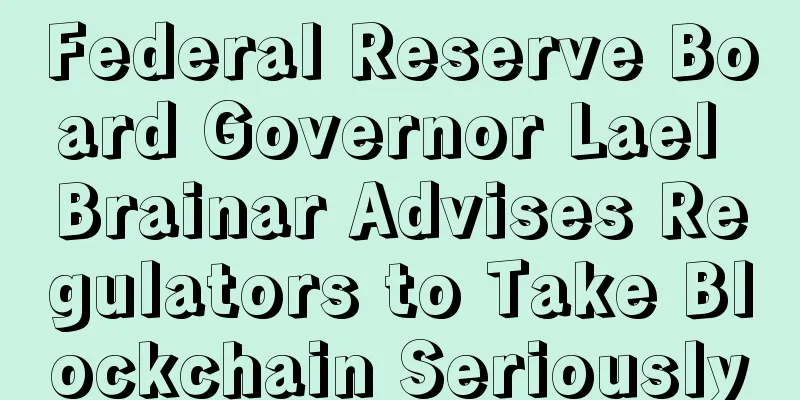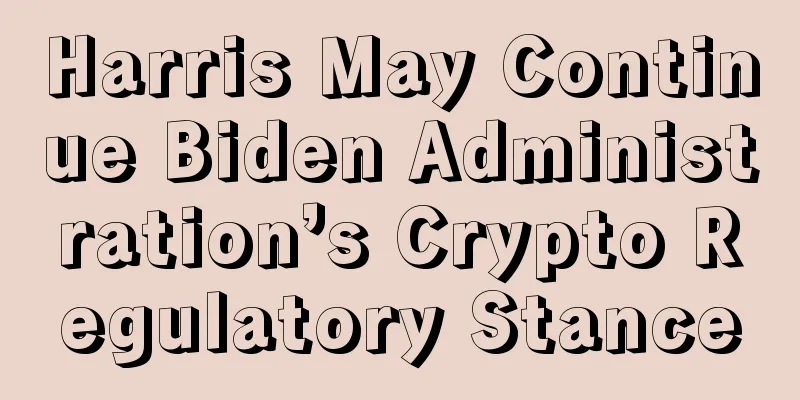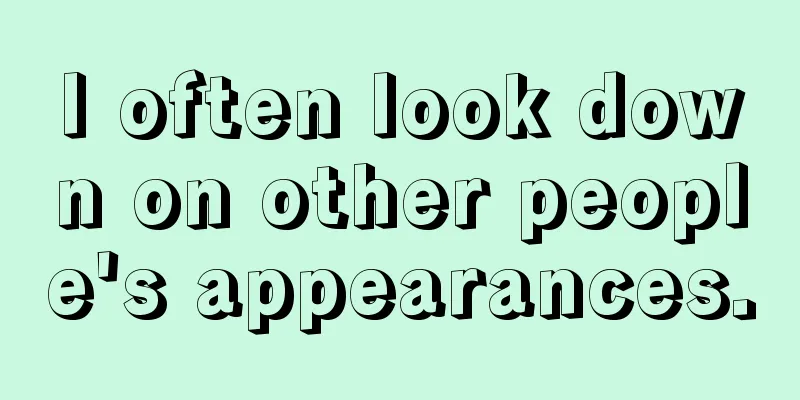Federal Reserve Board Governor Lael Brainar Advises Regulators to Take Blockchain Seriously

Translation: Nicole Federal Reserve Board Governor Lael Brainard gave his latest speech this week on how blockchain technology and distributed ledgers may impact U.S. financial markets. Speaking at a blockchain roundtable hosted by the Institute of International Finance, Brainard praised the nascent technology while also noting the need to be careful not to undermine confidence in financial markets as the industry explores blockchain’s potential. Lael Brainard Brainard offered some encouragement and caution to regulators, who she said have a responsibility to help maintain a balance between public and private interests. Brainard said:
In her speech, the former U.S. Treasury Under Secretary for International Affairs noted the increasing number of blockchain experiments and mentioned what she sees as the main challenges and considerations facing blockchain development and large-scale deployment. For example, Brainard said the interoperability of distributed ledgers is critical for other versions of the technology and legacy systems, as well as for those who maintain access to the database. She said:
Brainard concluded by revealing that the Federal Reserve will continue to attempt to address concerns from industry stakeholders and regulatory peers as it develops blockchain technology. Comments followed the speech from regulators both domestically and internationally, who have increasingly expressed their views on blockchain technology and its adoption. In recent weeks, both the U.S. Commodity Futures Trading Commission (CFTC) and Japan’s Financial Services Agency (FCA) have made important statements. Brainard’s speech came more than two years after Federal Reserve Chairwoman Janet Yellen said the U.S. central bank had no right to overstep its authority over Bitcoin, citing the internet as the longest-lasting example of blockchain technology. Reasons for optimism Despite the caveats, Brainard did not sound accusatory during her remarks, adding that she believes the financial industry and regulators should remain optimistic about the positive impacts of emerging technologies. For example, she said any change to the financial system should not be seen as bringing greater risk, and computerized bookkeeping might once have been considered a "technologist's pipe dream." Brainard particularly praised blockchain technology’s innovative peer-to-peer (P2P) networking and data storage, encryption and consensus algorithms. Now she still says blockchain technology and its applications need to go through a continuous iterative evaluation process, mentioning that the technology itself does not have the ability to solve industry problems. She concluded:
|
<<: Bitcoin legislation expert launches European digital currency & blockchain technology forum
>>: DTCC CEO: Blockchain technology is a once-in-a-century opportunity
Recommend
What does it mean where the teardrop mole grows? Is the teardrop mole on the left or right side of the eye for boys?
Legend has it that if there is a light brown mole...
Do you know what the Bitcoin mining reward will be in 2140?
With the Bitcoin mining reward halving approachin...
Contempt from 'coinless people': Bitcoin price will fall to $100 in ten years
Without taking into account the current and poten...
Which moles are good and should not be removed?
People with moles on their heads It is really goo...
Do women with big cheeks have good luck and will they be rich?
Women with big cheeks, that is, bigger faces, gene...
The difference between the facial features of a husband-killing person and a husband-prospering person
All men hope to find a wife who is suitable for t...
[100 Questions and Answers about Filecoin with Pictures] Question 29: What is the Sector of Filecoin?
Jump to view Question 28: The relationship betwee...
The face of a promiscuous woman
The face of a promiscuous woman A woman's pro...
What does Taiyin entering the life palace represent?
The Moon has the characteristics of being humble,...
Is it good to have a mole on the eyebrow? What does it mean when a man has a mole on his eyebrow?
Is it good to have a mole on the eyebrow? What do...
The shape of your nose can tell your happiness index in life
Women with small and protruding noses have bad te...
Revealing the secret of which face has more wealth
A person's facial features can reflect how mu...
Bitcoin's price trend shows a bad sign
The price of Bitcoin is showing a bad sign. The p...
What kind of career is suitable for you based on your face?
Work is an important part of a person's life....
Analysis of the dragon and phoenix eyes of a woman who is both beautiful inside and out
What does a woman’s face look like with dragon an...









